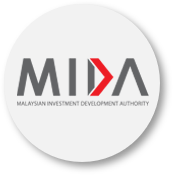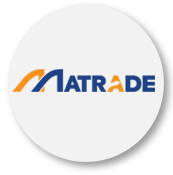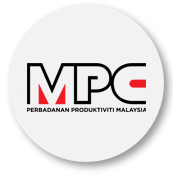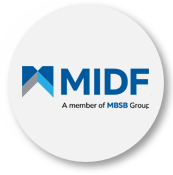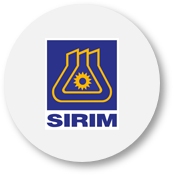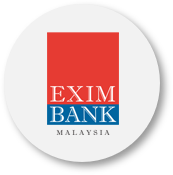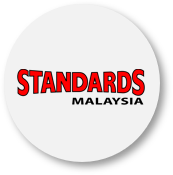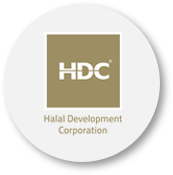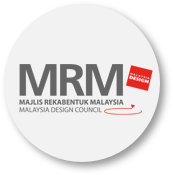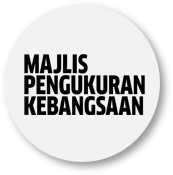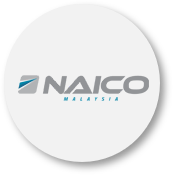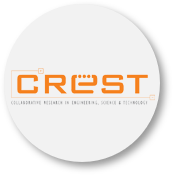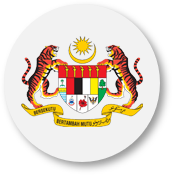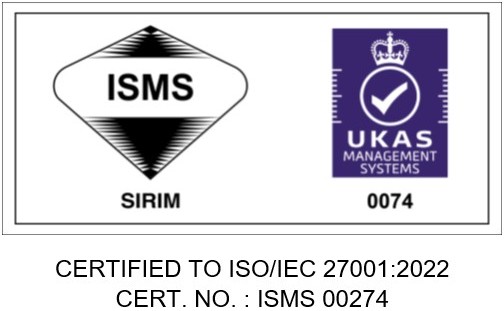Liberalisation initiatives through Free Trade Agreements (FTAs) are aimed at providing the means to achieve quicker and higher levels of liberalisation that would create and improve market access for both / all parties in the agreement.
For Malaysian services providers, FTAs provide predictability and security as there is a legally bound commitment on new as well as improved market access for various commercial and professional services in the partner country, such as in the professional services, healthcare, construction, ICT, and communications services.
Exporters in Malaysia will benefit from FTAs through preferential treatment and market access. Through FTAs, countries go beyond the liberalisation commitment made in the WTO, where such bound commitments enhance certainty and transparency for exporters of services as well as create a more stable and predictable trading and investment environment for Malaysian companies to export their products and services to trading partner markets.
Bilateral FTAs signed by Malaysia will include the following services sectors:
- Business
- Communication
- Construction
- Distribution
- Education
- Environmental
- Financial
- Health
- Tourism
- Recreational, Cultural & Sporting
- Transport
- Other services
Malaysia has signed bilateral FTAs involving the services sector with the following countries:
- Japan : The Malaysia – Japan Economic Partnership Agreement (MJEPA )
- Pakistan : The Malaysia – Pakistan Closer Economic Partnership Agreement (MPCEPA)
- New Zealand : The Malaysia – New Zealand Free Trade Agreement (MNZFTA)
- India : The Malaysia – India Comprehensive Cooperation Agreement ( MICECA)
- Australia : The Malaysia – Australia Free Trade Agreement (MAFTA)
The elements of ‘soft investments', i.e. the individual who is delivering or providing the actual service to the client, is now given emphasis by establishing transparent domestic procedures for temporary entry into the country by professionals or as business persons.
For certain FTAs, to facilitate temporary entry of professionals, Malaysia has entered into Mutual Recognition Arrangements (MRAs), where qualifications and experience in the respective sectors are mutually recognised.
For more information on each FTA, the summary, the Main Agreement and the schedule of commitments are provided.
Malaysia - Japan Economic Partnership Agreement (MJEPA)
-
Berikut merupakan ringkasan perkara-perkara utama berkaitan perkhidmatan di bawah FTA ini.
-
Jepun telah menawarkan pembekal-pembekal perkhidmatan Malaysia:
-
Akses pasaran ke sektor-sektor berikut:
- Perkhidmatan profesional dan perniagaan;
- perkhidmatan komunikasi;
- pembinaan dan perkhidmatan berkaitan Kejuruteraan;
- perkhidmatan Pengedaran;
- perkhidmatan Pendidikan;
- perkhidmatan Alam Sekitar;
- perkhidmatan Kewangan;
- perkhidmatan berkaitan Kesihatan & Sosial ;
- pelancongan dan perkhidmatan yang berkaitan;
- perkhidmatan Sukan, kebudayaan dan perkhidmatan Rekreasi lain;
- pengangkutan; dan
- lain-lain perkhidmatan.
-
-
Malaysia pula telah menawarkan:
-
Pelaksanaan awal ke atas penawaran melalui Pertubuhan Perdagangan Dunia (WTO) ke atas sektor-sektor berikut:
- Perkhidmatan profesional dan perniagaan;
- Perkhidmatan komunikasi;
- Pembinaan dan perkhidmatan berkaitan Kejuruteraan;
- Perkhidmatan Pendidikan;
- Perkhidmatan Kewangan;
- Perkhidmatan berkaitan Kesihatan & Sosial;
- Pelancongan dan perkhidmatan yang berkaitan;
- Perkhidmatan Sukan, kebudayaan dan perkhidmatan Rekreasi lain;
- Pengangkutan; dan
- Lain-lain perkhidmatan
-
Untuk maklumat lanjut, sila pilih jadual komitmen yang berkaitan.
Main Agreement
- Main Agreement
- Annex 4 (Reservation Investment Measures)
- Annex 5 (Measures Financial Services)
- Implementing Agreement
Schedule of Commitments
Malaysia - Pakistan Closer Economic Partnership Agreement (MPCEPA)
- MPCEPA came into effect in 2008, and Pakistan has offered:
- a maximum foreign equity participation of 60% in all sectors; and
- no limitations on the number of Malaysians employed in any one organisation
- The services sectors of interest to Malaysia are:
- professional services
- construction and related engineering services
- education services; and
- telecommunication services
- Malaysia has, in turn, offered:
- more favourable commitments than those made under the WTO such as in
- engineering
- tourism
- construction
- telecommunication
- architectural services
- accountancy; and
- professional & business services.
- New commitments in selected services sectors:
- Maritime transport;
- Franchise;
- Financial services; and
- Energy and gas services
- Commitments in the financial services involving:
- New licences on Islamic Banking & Takaful to qualified Pakistan financial institutions; and
- Insurance companies to establish representative offices in Malaysia and employing Pakistan expatriates in these entities.
- more favourable commitments than those made under the WTO such as in
For further details, please select the schedule of commitments.
Main Agreement
- Text Agreement
- Annex 6 - Framework on Mutual Recognition Arrangement
- Annex 7 - Reservations for existing and future measures
Schedule of Commitments
Malaysia - New Zealand Free Trade Agreement (MNZFTA)
-
The MNZFTA, which came into effect in August 2010, complements the existing regional trading agreement i.e. the ASEAN-Australia New Zealand Free Trade Agreement (AANZFTA) to which Malaysia, as a member of ASEAN, is party to.
-
This FTA also provides a framework to facilitate cross-border investments between the two countries through commitments on national treatment, most-favoured nation treatment, as well as protection of investors and investments
-
The MNZFTA facilitates further expansion between New Zealand and Malaysia by securing greater certainty, market access and national treatment opportunities; building on commitments under the WTO, GATS and AANZFTA.
-
The selected services sectors include:
- Primary & Secondary Education
- Higher Education
- Other education (language training)
- Environmental Services (e.g. waste water management)
- Tourism Services
- Veterinary services
- Management Consulting Services
- Maritime Services
-
Being a developed country, New Zealand's services industry is generally open and New Zealand has committed to:
- Entitling Malaysian services providers to access the market without quota values, numerical or legal entity-related restrictions and on the same basis given treatment as domestic suppliers (national treatment).
- Providing access for Malaysian services providers to the sectors that include
- engineering services,
- architectural services;
- environmental services;
- services incidental to mining; as well as
- computer and related services.
-
An area of strategic alliance is education where New Zealand with its established institutes and quality education can strengthen Malaysia in becoming an educational hub.
-
Opportunities for Malaysian and New Zealand professionals to establish joint ventures to export services or invest in third countries are also present.
For further details, please select the schedule of commitments.
Main Agreement
Schedule of Commitments
- Annex 4 - Schedule of Specific Services Commitments-New Zealand
- Annex 4 - Schedule of Commitments-Malaysia
- Annex 5 - Most Favoured Nation Treatment Sectoral Coverage Under Article 8.8
- Annex 6 - Schedule of Movement of Natural Persons Commitments
Malaysia - India Comprehensive Economic Cooperation Agreement (MICECA)
-
Brought into effect in July 2011, this FTA has opened up the markets of both Malaysia and India where cross border trade in services provides services providers access to each other's market.
-
The MICECA also covers chapters on Movement of Natural Persons (MNP) and Mutual Recognition Arrangements (MRA) which will help ease the temporary entry of professional and business persons into the respective countries.
-
India has committed to allow Malaysian foreign equity shareholding ranging from 49% to 100% in more than 80 service sub – sectors while Malaysia has made commitments by allowing Indian equity shareholding in 91 service sub-sectors.
-
In terms of market access, the commitments between Malaysia and India include :
- professional services;
- research & development;
- transport;
- healthcare;
- telecommunications;
- computer-related services;
- construction services;
- education services;
- tourism and travel-related services;
- distribution and retail services; and
- environmental services.
-
Moreover, there are no restrictions towards:
- the total number of service providers;
- the number of transactions;
- quantity of professionals;
- form of establishment; and
- Mutual Recognition Arrangements
-
MICECA also provides strategic partnerships between Malaysian and Indian companies which can be undertaken through joint ventures, in services sectors such as tourism, construction, franchising and healthcare.
For further details, please select the schedule of commitments.
Main Agreement
Schedule of Commitments
Malaysia - Australia Free Trade Agreement (MAFTA)
-
MAFTA will come into effect in January 2013 and will complement the already established ASEAN – Australia - New Zealand FTA (AANZFTA) commitments between Australia and Malaysia.
-
MAFTA covers liberalisation of Trade in Services in the areas of:
- Market access;
- Movement of Natural Persons; and
- Mutual Recognition Arrangements
-
The chapters on Movement of Natural Persons (MNP) and Mutual Recognition Arrangements (MRA) will help ease the temporary entry of professional and business persons into the respective countries.
-
Offers by Malaysia include guaranteeing Australian investors majority ownership in companies in a wide range of sectors providing services. These are broadly in the following areas:
- Education - 70 per cent ownership in higher education working up to 100% in 2015;
- Financial services - 70 per cent ownership in investment banking and direct insurance services;
- Telecommunication - minimum 70 per cent ownership;
- Professional services - 100 per cent in accounting, auditing and bookkeeping services; 51 per cent in taxation and 100 per cent in management consultant services (except financial management consulting );
- Tourism;
- Research & development; and
- Mining - related services.
-
Australia will allow:
- Malaysian participation in hospital services and hospital support services;
- Participation in providing traditional and complementary medicine services.
For further details, please select the schedule of commitments.
Main Agreement
Schedule of Commitments
The ASEAN region has been acknowledged as having the largest trade in services compared to other developing countries' regional groupings.
As such the emergence of an ASEAN Economic Community is viewed as a strategic alliance that will not only integrate the region but also give it economic strength and leverage through liberalisation of the services sector.
The ASEAN Economic Community Blueprint, adopted in 2007, contains specific targets and sets out concrete steps to be taken to achieve a free flow of services by 2015 with flexibility.
ASEAN countries officially launched their joint effort to work towards free flow of trade in services within the region through the signing of the ASEAN Framework Agreement on Services (AFAS), in December 1995.
AFAS aims to:
- Enhance cooperation in services amongst Member States in order to improve the efficiency and competitiveness and supply and distribution of services of their service suppliers within and outside ASEAN;
- Eliminate substantially restrictions to trade in services amongst Member States; and
- Liberalise trade in services by expanding the depth and scope of liberalisation beyond those undertaken by Member States under the GATS with the aim to realising a free trade area in services.
All AFAS rules are consistent with international rules for trade in services as provided by the General Agreement on Trade in Services (GATS) of the World Trade Organisation (WTO). Liberalisation of services under AFAS is working towards achieving commitments beyond member countries' commitments under GATS, or known as the GATS-Plus principle.
To date, ASEAN has concluded ten packages of commitments under AFAS in a wide range of services sectors. These packages are implemented via Protocols signed by the ASEAN Economic Ministers and provide details of liberalisation of the services sectors and sub-sectors where commitments are made.
Mutual Recognition Arrangements
Mutual Recognition Arrangements (MRAs) is an initiative in ASEAN integration on trade in services by facilitating the flow of foreign professionals taking into account relevant domestic regulations and market conditions. It facilitates trade in services by mutual recognition of authorisation, licensing or certification of professional service suppliers obtained in one ASEAN Member State by other ASEAN Member States.
At present, ASEAN has concluded seven MRAs signed by the ASEAN Economic Ministers (AEM):
- MRA on Engineering Services (9 December 2005 in Malaysia);
- MRA on Nursing Services (8 December 2006 in Philippines);
- MRA on Architectural Services, 19 November 2007 in Singapore;
- Framework Arrangement for the Mutual Recognition of Surveying Qualifications (19 November 2007 in Singapore);
- MRA Framework on Accountancy Services (26 February 2009 in Thailand), subsequently amended as MRA on Accountancy Services (13 November 2014 in Myanmar);
- MRA on Medical Practitioners (26 February 2009 in Thailand); and
- MRA on Dental Practitioners (26 February 2009 in Thailand).
As an entity of economic integration, ASEAN has signed FTAs that include trade in services chapters with the following Dialogue Partners:
- ASEAN - China Trade in Services (EIF: January 2007);
- ASEAN - Korea Trade in Services (EIF: May 2009); and
- ASEAN - Australia - New Zealand Trade In Services (EIF: January 2010); and
- ASEAN - Hong Kong, China Free Trade Agreement (EIF: August 2019).
For more information on AFAS (liberalisation packages and MRAs) and ASEAN FTA with Dialogue partners, please select:
Mutual Recognition Agreements
Liberalisation Packages
Protocol to Implement the Initial Package of Commitments Under the ASEAN Framework Agreement on Services
- Protocol to implement the 1st package (AFAS 1)
- Protocol to implement the 2nd package (AFAS 2)
- Protocol to implement the 3rd package (AFAS 3)
- Protocol to implement the 4th package (AFAS 4)
- Protocol to implement the 5th package (AFAS 5)
- Protocol to implement the 6th package (AFAS 6)
- Protocol to implement the 7th package (AFAS 7)
- Protocol to implement the 8th package (AFAS 8)
- Protocol to implement the 9th package (AFAS 9)
- Protocol to Implement the 10th package (AFAS 10)
Schedules of Specific Commitments
Schedule of Specific Commitments (AFAS 1)
Brunei
Indonesia
- Schedule of Specific Commitments
- Schedule of Specific Commitments (Horizontal Commitment)
- Final List Of MFN Exemptions
Laos
Malaysia
- Schedule of Specific Commitments
- Schedule of Specific Commitments (Horizontal Commitment)
- Final List Of MFN Exemptions
Myanmar
Philipines
- Schedule of Specific Commitments
- Schedule of Specific Commitments (Horizontal Commitment)
- Final List Of MFN Exemptions
Singapore
- Schedule of Specific Commitments
- Schedule of Specific Commitments (Horizontal Commitment)
- Final List Of MFN Exemptions
Thailand
- Schedule of Specific Commitments
- Schedule of Specific Commitments (Horizontal Commitment)
- Final List Of MFN Exemptions
Vietnam
Schedule of Specific Commitments (AFAS 2)
Brunei
- Schedule of Specific Commitment
- Schedule of Specific Commitment (Horizontal Commitment)
- Final List Of MFN Exemptions
Indonesia
- Schedule of Specific Commitment
- Schedule of Specific Commitment (Horizontal Commitment)
- Final List Of MFN Exemptions
Laos
Malaysia
- Schedule of Specific Commitment
- Schedule of Specific Commitment (Horizontal Commitment)
- Final List Of MFN Exemptions
Myanmar
Philipines
- Schedule of Specific Commitment
- Schedule of Specific Commitment (Horizontal Commitment)
- Final List Of MFN Exemptions
Singapore
- Schedule of Specific Commitment
- Schedule of Specific Commitment (Horizontal Commitment)
- Final List Of MFN Exemptions
Thailand
- Schedule of Specific Commitment
- Schedule of Specific Commitment (Horizontal Commitment)
- Final List Of MFN Exemptions
Vietnam
Schedule of Specific Commitments (AFAS 3)
Brunei
- Schedule of Specific Commitment
- Schedule of Specific Commitment (Horizontal Commitment)
- Final List Of MFN Exemptions
Indonesia
- Schedule of Specific Commitment
- Schedule of Specific Commitment (Horizontal Commitment)
- Final List Of MFN Exemptions
Laos
- Schedule of Specific Commitment
- Schedule of Specific Commitment (Horizontal Commitment)
- Final List Of MFN Exemptions
Malaysia
- Schedule of Specific Commitment
- Schedule of Specific Commitment (Horizontal Commitment)
- Final List Of MFN Exemptions
Myanmar
Philipines
Singapore
- Schedule of Specific Commitment
- Schedule of Specific Commitment (Horizontal Commitment)
- Final List Of MFN Exemptions
Thailand
- Schedule of Specific Commitment
- Schedule of Specific Commitment (Horizontal Commitment)
- Final List Of MFN Exemptions
Vietnam
Schedule of Specific Commitments (AFAS 4)
Brunei
- Schedule of Specific Commitment
- Schedule of Specific Commitment (Horizontal Commitment)
- Final List Of MFN Exemptions
Cambodia
Indonesia
- List Of MFN Exemptions
- Schedule of Specific Commitment (Horizontal Commitment)
- Schedules of Specific Commitments
Laos
- Schedules of Specific Commitments
- Schedule of Specific Commitment (Horizontal Commitment)
- Final List Of MFN Exemptions
Malaysia
- List Of MFN Exemptions
- Schedule of Specific Commitment (Horizontal Commitment)
- Schedules of Specific Commitments
Myanmar
Philipines
- List Of MFN Exemptions
- Schedule of Specific Commitment (Horizontal Commitment)
- Schedules of Specific Commitments
Singapore
Thailand
- List Of MFN Exemptions
- Schedule of Specific Commitment (Horizontal Commitment)
- Schedules of Specific Commitments
Vietnam
Schedule of Specific Commitments (AFAS 5)
Brunei
- List Of MFN Exemptions
- Schedule of Specific Commitment (Horizontal Commitment)
- Schedule of Specific Commitment
Indonesia
- List Of MFN Exemptions
- Schedule of Specific Commitment (Horizontal Commitment)
- Schedules of Specific Commitments
Laos
- List Of MFN Exemptions
- Schedule of Specific Commitment (Horizontal Commitment)
- Schedules of Specific Commitments
Malaysia
- List Of MFN Exemptions
- Schedule of Specific Commitment (Horizontal Commitment)
- Schedules of Specific Commitments
Myanmar
Philipines
- List Of MFN Exemptions
- Schedule of Specific Commitment (Horizontal Commitment)
- Schedules of Specific Commitments
Singapore
- List Of MFN Exemptions
- Schedule of Specific Commitment (Horizontal Commitment)
- Singapore - Schedule of Specific Commitment
Thailand
- List Of MFN Exemptions
- Schedule of Specific Commitment (Horizontal Commitment)
- Schedules of Specific Commitments
Vietnam
- List Of MFN Exemptions
- Schedule of Specific Commitment (Horizontal Commitment)
- Schedules of Specific Commitments
Cambodia
Schedule of Specific Commitments (AFAS 6)
Brunei
- List Of MFN Exemptions
- Schedule of Specific Commitment (Horizontal Commitment)
- Schedule of Specific Commitments
Cambodia
- List Of MFN Exemptions
- Schedule of Specific Commitment (Horizontal Commitment)
- Schedule of Specific Commitments
Indonesia
- List Of MFN Exemptions
- Schedule of Specific Commitment (Horizontal Commitment)
- Schedules of Specific Commitments
Laos
- List Of MFN Exemptions
- Schedule of Specific Commitment (Horizontal Commitment)
- Schedules of Specific Commitments
Malaysia
- List Of MFN Exemptions
- Schedule of Specific Commitment (Horizontal Commitment)
- Schedules of Specific Commitments
Myanmar
Philipines
- List Of MFN Exemptions
- Schedule of Specific Commitment (Horizontal Commitment)
- Schedules of Specific Commitments
Singapore
- List Of MFN Exemptions
- Schedule of Specific Commitment (Horizontal Commitment)
- Singapore - Schedule of Specific Commitments
Thailand
- List Of MFN Exemptions
- Schedule of Specific Commitment (Horizontal Commitment)
- Schedules of Specific Commitments
Vietnam
Schedule of Specific Commitments (AFAS 7)
Brunei
Cambodia
Indonesia
Laos
Malaysia
Myanmar
Philipines
Singapore
Thailand
Vietnam
Schedule of Specific Commitments (AFAS 8)
Brunei
- List Of MFN Exemptions
- Schedule of Specific Commitment (Horizontal Commitment)
- Schedule of Specific Commitment
Indonesia
- List Of MFN Exemptions
- Schedule of Specific Commitment (Horizontal Commitment)
- Schedule of Specific Commitment
Laos
- List Of MFN Exemptions
- Schedule of Specific Commitment (Horizontal Commitment)
- Schedule of Specific Commitment
Malaysia
- List Of MFN Exemptions
- Schedule of Specific Commitment (Horizontal Commitment)
- Schedule of Specific Commitment
Myanmar
Philipines
- List Of MFN Exemptions
- Schedule of Specific Commitment (Horizontal Commitment)
- Schedule of Specific Commitment
Singapore
- List Of MFN Exemptions (25.56KB)
- Schedule of Specific Commitment (Horizontal Commitment)
- Schedule of Specific Commitment
Thailand
- List Of MFN Exemptions
- Schedule of Specific Commitment (Horizontal Commitment)
- Schedule of Specific Commitment
Vietnam
Schedule of Specific Commitments (AFAS 9)
Brunei
- List Of MFN Exemptions
- Schedule of Specific Commitment (Horizontal Commitment)
- Schedule of Specific Commitment
Cambodia
- List Of MFN Exemptions
- Schedule of Specific Commitment (Horizontal Commitment)
- Schedule of Specific Commitment
Indonesia
- List Of MFN Exemptions
- Schedule of Specific Commitment (Horizontal Commitment)
- Schedule of Specific Commitment
Laos
- List Of MFN Exemptions
- Schedule of Specific Commitment (Horizontal Commitment)
- Schedule of Specific Commitment
Malaysia
- List Of MFN Exemptions
- Schedule of Specific Commitment (Horizontal Commitment)
- Schedule of Specific Commitment
Myanmar
Philippines
- List Of MFN Exemptions
- Schedule of Specific Commitment (Horizontal Commitment)
- Schedule of Specific Commitment
Singapore
- List Of MFN Exemptions
- Schedule of Specific Commitment (Horizontal Commitment)
- Schedule of Specific Commitment
Thailand
- List Of MFN Exemptions
- Schedule of Specific Commitment (Horizontal Commitment)
- Schedule of Specific Commitment
Viet Nam
Schedules of Specific Commitments (AFAS 10)
Brunei
Cambodia
Indonesia
Laos
Malaysia
Myanmar
Philippines
Singapore
Thailand
Viet Nam
ASEAN FTA With Dialogue Partners
ASEAN - Korea Trade in Services
Background
-
During ASEAN-Korea Summit in November 2004 in Vientiane, Lao PDR, Leaders welcomed the recommendation of the Report of the Joint Study on Comprehensive Closer Economic Relations between ASEAN and Korea of the ASEAN-Korea Experts Group (AKEG), among others, to establish a Free Trade Area between ASEAN-Korea Free Trade Area.
-
At the 8th ASEAN-Korea Summit held on 29 November 2004, the Leaders signed the ASEAN-ROK Joint Declaration on Comprehensive Cooperation Partnership Agreement. Through the Joint Declaration, the Leaders among others agreed to:
-
the recommendations of the ASEAN-ROK Experts Group (AKEG) on the measures to expand two-way trade and investment by liberalising and integrating the markets;
-
the establishment of an ASEAN-ROK Free Trade Area (AKFTA); and
- launching the AKFTA negotiations in early 2005 with a goal of having at least 80% of products at zero tariff by 2009, and consideration of special and differential treatment and additional flexibility for new ASEAN Member Countries.
-
-
The Framework Agreement on Comprehensive Economic Cooperation between ASEAN and Korea was signed by the Leaders at the ASEAN-Korea Summit on 13 December 2005 in Kuala Lumpur, Malaysia and came into force on 1 July 2006. (Click here to view full text of the agreement)
-
The main objective of this agreement is to establish an ASEAN-Korea Free Trade Area (AKFTA) to strengthen and enhance economic, trade and investment cooperation among ASEAN Member States and Korea by progressively liberalizing and promoting trade in goods and services as well as create a transparent, liberal and facilitative investment regime.
-
The Agreement also aims to explore new areas and develop appropriate measures for closer economic cooperation and integration; facilitate more effective economic integration of the new ASEAN Member States and bridge the development gaps; and, establish a cooperative framework to further strengthen economic relations among the countries.
-
To achieve the objectives of the Framework Agreement, the Economic Ministers of ASEAN and Korea, with the exception of Thailand, signed the Agreement on Trade in Goods of the Framework Agreement on Comprehensive Economic Cooperation between ASEAN and Korea on 26 August 2006.
-
Following the Trade in Goods Agreement, the ASEAN-Korea Trade in Services Agreement was concluded and signed in 2007 and The ASEAN-Korea Investment Agreement was signed in 2009.
-
FTA for Trade in Services and Investment to be implemented within the timeframes to be mutually agreed between ASEAN and Korea; and cooperation in the areas of:
- Customs Procedures;
- Trade and Investment Promotion;
- Small and Medium Enterprises;
- Human Resource Management and Development;
- Tourism;
- Science and Technology;
- Financial Services;
- Information and Communication Technology;
- Agriculture, Fisheries, Livestock, Plantation Commodities and Forestry;
- Intellectual Property;
- Environmental Industry;
- Broadcasting;
- Construction Technology;
- Standards and Conformity Assessment and Sanitary and Phytosanitary Measures;
- Mining;
- Energy;
- Natural Resources;
- Shipbuilding and Maritime Transport; and
- Film.
-
The Agreement on Dispute Settlement Mechanism among ASEAN and Korea was also signed by the Economic Ministers of Korea and ASEAN on 13 December 2005 to provide a mechanism for any disputes that may arise between Parties from the interpretation, implementation or application of all the stand alone Agreements of the ASEAN Korea Free Trade Agreement (AKFTA).
Trade in Services Agreement
- Negotiations for Trade in Services Agreement was concluded in October 2007. The ASEAN-Korea Trade in Services Agreement was signed by the Economic Ministers and Korea at the ASEAN-Korea Summit on 21 November 2007.
- The scope of offers is based on commitments under:
- WTO Doha Round; and
- selected sectors under the Fourth Package of ASEAN Framework Agreement on Services (AFAS) such as:
- business services;
- computer related services;
- telecommunication services;
- construction;
- distribution services;
- educational services;
- environmental services;
- financial services;
- tourism and related services; and
- transport services.
- Malaysia is expected to gain leverage in penetrating Korea's services market. These are in competitive sectors such as construction, engineering, financial services and Information Communication and Technology (ICT).
Main Agreement
Protocol On The Accesion Of Thailand To AFTA
Schedules Of Specific Commitments (Annexes)
- Brunei
- Cambodia
- Indonesia
- Korea
- Lao PDR
- Malaysia
- Myanmar
- The Philippines
- Singapore
- Thailand
- Viet Nam
ASEAN - China Trade in Services
Main Agreement
- ASEAN - CHINA Trade In Services
Protocol To Implement 2nd Package
- ASEAN - CHINA - TIS2 Protocol
Schedules Of Specific Commitments
|
Schedules Of Specific Commitments 1st Package
|
Schedules Of Specific Commitments 2nd Package
|
|
|---|---|---|
|
|
||
ASEAN - Australia - New Zealand Trade in Services Chapter
Background
The ASEAN, Australia and New Zealand Summit on 30 November 2004 in Vientiane, Lao PDR, agreed to establish a comprehensive ASEAN, Australia and New Zealand Free Trade Area. The FTA would build on the existing cooperation initiatives under the AFTA-CER CEP, especially in the areas of:
-
trade and investment facilitation measures;
-
technical assistance; and
-
capacity building activities.
Scope
AANZFTA is ASEAN's first comprehensive FTA negotiations with Dialogue Partners covering all sectors:
-
trade in goods;
-
investment;
-
trade in services;
-
financial services;
-
telecommunications;
-
electronic commerce;
-
movement of natural persons;
-
intellectual property;
-
competition policy; and
-
economic cooperation.
Status
Economic Ministers of ASEAN, Australia and New Zealand signed the ASEAN-Australia-New Zealand FTA (AANZFTA) Agreement on 27 February 2009 in Thailand.
ASEAN-Australia-New Zealand Free Trade Area have been implemented on 1 January 2010.
Related documents
ANNEX 3 - Schedules Specific Services Commitments
|
• Australia |
• Brunei Darussalam |
• Cambodia |
|
• Indonesia |
• Lao PDR |
• Malaysia |
|
• Myanmar |
• New Zealand |
• Philippines |
|
• Singapore |
• Thailand |
• Vietnam |
ANNEX 4 - Schedules of Movement of Natural Persons Commitments
General Notes
|
• Australia |
• Brunei Darussalam |
• Cambodia |
|
• Indonesia |
• Lao PDR |
• Malaysia |
|
• Myanmar |
• New Zealand |
• Philippines |
|
• Singapore |
• Thailand |
• Vietnam |
Main Agreement
Schedules of Specific Commitments (Annexes)
| Schedule of Specific Commitments | Schedule of Movement of Natural Persons | |
ASEAN - Hong Kong, China FTA : Trade in Services Chapter
In line with the services liberalisation under the World Trade Organisation (WTO), Chapter 8 (Trade in Services) under the AHKFTA provides for the progressive liberalisation of the services sector through substantial sectoral coverage. Services and service suppliers/providers in the region will enjoy improved market access and national treatment in sectors/subsectors as specified in the schedules of specific services commitments (by Parties) as follows:
Multilateral agreements are the rules of trade between market economies under the organisation called the World Trade Organisation (WTO).
It is a multilateral trading system, and the crux of this system, are the various agreements under the WTO, the legal ground – rules for international commerce. These agreements are contracts, ensuring that member countries practise a transparent regime while maintaining their trading rights; binding governments to honour their trade policies within agreed limits thereby assuring that trade flows are smooth and predictable as possible.
The system began with a series of trade negotiations or rounds, primarily to reduce tariffs to increase global trade in goods. The result is the General Agreement on Trade and Tariffs (GATT).
Constantly evolving, the last round, called the Uruguay Round (1986 -1994) moved from just trade in goods to include other areas such as anti-dumping and non-tariff measures and eventually leading to the creation of WTO.
The multilateral trading system continued developing, and liberalisation measures began to be negotiated and with the advent and spread of technology, services became a significant sector that had potential impact on the economy of all WTO members.
All these 'new' areas of negotiations came under a broader agenda that took main stage at the 4th Ministerial Conference in Doha in 2001, which is called the Doha Development Agenda (DDA).
The DDA is the first full-fledged multilateral trade negotiations round under the newly created WTO which includes a development dimension to address the problems and concerns of developing countries and least developed countries.
Negotiations under the Doha Round covers about 20 areas of trade including agriculture, non-agriculture market access (NAMA), services, trade facilitation, trade rules (anti-dumping, subsidies and countervailing measures), intellectual property rights (TRIPS), and environment.
The negotiations proper are described as a "single undertaking". This means they form a single package of about 20 areas where negotiations would be on the basis of "nothing is agreed until everything is agreed".
Negotiations on services began in the Uruguay Round where it was felt that services should enjoy the same principles of freer and fairer trade that thus far had only applied to goods. These negotiations resulted in the establishment of the General Agreement on Trade in Services (GATS).
GATS is the only set of multilateral rules that govern international trade in services. WTO members are committed to rounds of services negotiation with the first one having started in January 2000.
These commitments revolve around stating which of their services sectors they are willing to open to foreign competition, and how open those markets are. Developing countries are allowed progressive liberalisation to ensure a level playing field taking into account that developed countries would have a much more developed/mature and competitive services sector compared to developing countries.
In March 2001, the Services Council fulfilled a key element in the negotiating mandate by establishing the negotiating guidelines and procedures.
The GATS applies to all services sectors, with two exceptions.
- "services supplied in the exercise of governmental authority".
- these are services that are supplied neither on a commercial basis nor in competition with other suppliers. Cases in point are social security schemes and any other public services, such as health or education, that is provided at non-market conditions.
- The Annex on Air Transport Services exempts from coverage measures affecting air traffic rights and services directly related to the exercise of these rights.
There are specific obligations, commitments and services schedules that member country must comply with and these details can be accessed as follows:
General Agreement On Trade In Services (GATS)
Scope and Definition
The General Agreement on Trade in Services (GATS) has three elements:
- the main text containing general obligations and disciplines;
- annexes dealing with rules for specific sectors; and
- individual countries' specific commitments to provide access to their markets, including indications of where countries are temporarily not applying the "most favoured-nation" principle of non-discrimination.
Basic principles
- All services are covered by GATS
- Most-favoured-nation treatment applies to all services, except the one-off temporary exemptions
- National treatment applies in the areas where commitments are made
- Transparency in regulations, inquiry points
- Regulations have to be objective and reasonable
- International payments: normally unrestricted
- Individual countries. commitments: negotiated and bound
- Progressive liberalization: through further negotiations
General Obligations & Disciplines
Total Coverage
The agreement covers all internationally-traded services for example, banking, telecommunications, tourism, professional services, etc.
It also defines four ways (or .modes.) of trading services:
- services supplied from one country to another (e.g. international telephone calls), officially known as "cross-border supply" (in WTO jargon, "mode 1".)
- consumers or firms making use of a service in another country (e.g. tourism), officially "consumption abroad" ("mode 2")
- a foreign company setting up subsidiaries or branches to provide services in another country (e.g. foreign banks setting up operations in a country), officially "commercial presence" ("mode 3")
- individuals travelling from their own country to supply services in another (e.g. fashion models or consultants), officially "presence of natural persons" ("mode 4")
Most - Favoured Nation (MFN) Treatment
- MFN means treating one's trading partners equally on the principle of non-discrimination. Under GATS, if a country allows foreign competition in a sector, equal opportunities in that sector should be given to service providers from all other WTO members. (This applies even if the country has made no specific commitment to provide foreign companies access to its markets under the WTO.) MFN applies to all services, but some special temporary exemptions have been allowed.
- When GATS came into force, a number of countries already had preferential agreements in services that they had signed with trading partners, either bilaterally or in small groups. WTO members felt it was necessary to maintain these preferences temporarily. They gave themselves the right to continue giving more favorable treatment to particular countries in particular services activities by listing "MFN exemptions" alongside their first sets of commitments. In order to protect the general MFN principle, the exemptions could only be made once; nothing can be added to the lists. They are currently being reviewed as mandated, and will normally last not more than ten years.
Commitments on Market Access & National Treatment
-
Individual countries' commitments to open markets in specific sectors - and how open those markets will be - are the outcome of negotiations. The commitments appear in "schedules" that list sectors that are being opened, the extent of market access being given in those sectors (e.g. whether there are any restrictions/limitations on foreign ownership), and any limitations on national treatment (whether some rights granted to local companies will not be granted to foreign companies). So, for example, if a government commits itself to allow foreign banks to operate in its domestic market, that is a market-access commitment. And if the government limits the number of licences it will issue, then that is a market-access limitation. If it also says foreign banks are only allowed one branch while domestic banks are allowed numerous branches, that is an exception to the national treatment principle.
-
These clearly defined commitments are "bound": like bound tariffs for trade in goods, they can only be modified after negotiations with affected countries. Bound means when after a commitment is made, a government therefore binds the specified level of market access and national treatment and undertakes not to impose any new measures that would restrict entry into the market or the operation of the service. Because "unbinding" is difficult, the commitments are virtually guaranteed conditions for foreign exporters and importers of services and investors in the sector to do business. Governmental services are explicitly carved-out (excluded) of the agreement and there is nothing in GATS that could force a government to privatize service industries. In fact the word "privatize" does not even appear in GATS. Nor does it outlaw government or even private monopolies.
-
The "carve-out" is an explicit commitment by WTO governments to allow publicly funded services in core areas of their responsibility. Governmental services are defined in the agreement as those that are not supplied commercially and do not compete with other suppliers. These services are not subject to any GATS disciplines, they are not covered by the negotiations, and commitments on market access and national treatment (treating foreign and domestic companies equally) do not apply to them.
-
GATS' approaches to making commitments mean that Members are not obliged to commit any sector out of the whole "universe" of services sectors. A government may not want to make a suppliers.commitment on the level of foreign competition in a given sector, because it considers that sector to be a core governmental function or indeed for any other reason. In this case, the government's only obligations are minimal, for example to be transparent in regulating the sector, and not to discriminate between foreign
Transparency
GATS says governments must publish all relevant laws and regulations, and set up enquiry points within their bureaucracies. Foreign companies and governments can then use these inquiry points to obtain information about regulations in any service sector. And they have to notify the WTO of any changes in regulations that apply to the services that come under specific commitments.
Regulations : Objective
-
Since domestic regulations are the most significant means of exercising influence or control over services trade, the agreement says governments should regulate services reasonably, objectively and impartially. When a government makes an administrative decision that affects a service, it should also provide an impartial means for reviewing the decision (for example a tribunal).
-
GATS does not require any service to be deregulated. Commitments to liberalize do not affect governments' right to set levels of quality, safety, or price, or to introduce regulations to pursue any other policy objective they see fit. A commitment to national treatment, for example, would only mean that the same regulations would apply to foreign suppliers as to nationals. Governments naturally retain their right to set qualification requirements for doctors or lawyers, and to set standards to ensure consumer health and safety.
Recognition
When two (or more) governments have agreements recognizing each other's qualifications (for example, the licensing or certification of service suppliers), GATS says other members must also be given a chance to negotiate comparable pacts. The recognition of other countries' qualifications must not be discriminatory, and it must not amount to protectionism in disguise. These recognition agreements have to be notified to the WTO.
Note:Draft 3 Ogos 2012
International Payments & Transfer
Once a government has made a commitment to open a service sector to foreign competition, it must not normally restrict money being transferred out of the country as payment for services supplied ("current transactions") in that sector. The only exception is when there are balance-of-payments difficulties, and even then the restrictions must be temporary and subject to other limits and conditions.
Progressive Liberalisation
The Uruguay Round was only the beginning. GATS requires more negotiations, which began in early 2000 and are now part of the Doha Development Agenda. The goal is to take the liberalization process further by increasing the level of commitments in schedules.
Movement of Natural Persons
The Uruguay Round was only the beginning. GATS requires more negotiations, which began in early 2000 and are now part of the Doha Development Agenda. The goal is to take the liberalization process further by increasing the level of commitments in schedules.
Financial Services
Instability in the banking system affects the whole economy. The financial services annex gives governments' very wide latitude to take prudential measures, such as those for the protection of investors, depositors and insurance policy holders, and to ensure the integrity and stability of the financial system. The annex also excludes from the agreement services provided when a government is exercising its authority over the financial system, for example central banks' services.
Telecommunications
The telecommunications sector has a dual role: it is a distinct sector of economic activity; and it is an underlying means of supplying other economic activities (for example electronic money transfers). The annex on telecommunications says governments must ensure that foreign service suppliers are given access to the public telecommunications networks without discrimination.
Air Transport Services
Under this annex of air transport services, traffic rights and directly related activities are excluded from GATS's coverage. They are handled by other bilateral agreements. However, the annex establishes that the GATS will apply to aircraft repair and maintenance services, marketing of air transport services and computer-reservation services. Members are currently reviewing the annex.
Overview of Malaysia's Commitments Under The GATS
Malaysia's commitments to GATS are in adhering to obligations that involve
- further progressive liberalisation of market access;
- developing disciplines on domestic regulation; and
- rule-making in the area of emergency safeguard measures, government procurement and subsidies.
The GATS provides four modes of supplying services:
- cross-border trade (Mode 1) - This is a situation where both the services provider and consumer/client can provide or consume services without having to be in the same country/ geographical territory. For example a consumer/client in Malaysia receives services from abroad through its telecommunications or postal infrastructure. Such supplies may include consultancy or market research reports, tele-medical advice, distance learning, back office operations etc.
- consumption abroad (Mode 2) - This is a situation where the consumer/client consumes a service by moving to the country/ geographical territory where the services provider is. For example a Malaysian goes abroad as tourist, student or as medical patient to consume the respective services e.g. seeking medical treatment in Singapore. The supplier of the services does not have to move/relocate.
- commercial presence (Mode 3) - This is a situation where the services supplier moves and establishes itself in a country/ geographical territory to provide services to the consumer/client of that country/geographical territory. The service is provided within Malaysia by a locally established affiliate, subsidiary or representative office of a foreign-owned and/or controlled company (bank, hotel group, construction company etc.), FDI.
- presence of natural persons (Mode 4) - This is a situation where the professional services supplier moves temporarily to a country/ geographical territory to provide services to the consumer/client of that country/geographical territory. A foreign national provides a service within Malaysia as an independent supplier (e.g. consultant, health worker) or as an employee of a services supplier (e.g. consultancy firm, hospital, construction company.
Under GATS, Malaysia, as with all other member countries, is expected to identify services sectors or sub-sectors and the modes of supply in which it is willing to make liberalisation commitments through the process of ‘scheduling', as well as to indicate any limitations on market access and national treatment.
Working on a ‘request and offer' basis, members send requests directly to each other indicating what improvements they are seeking for their services and services suppliers; members specify in their initial offers how and to what extent they are willing to take binding commitments in response to these requests.
Malaysia has received requests that cover a wide range of professional services, advertising, news agency services, telecommunications and computer-related services.
In response, Malaysia has also forwarded its own list of requests for market access to forty-five countries that cover architecture, engineering, accountancy, construction and telecommunication services.
Malaysia's existing commitments cover 10 services sectors:
- Business and Professional;
- Communication Services;
- Construction and Related Engineering Services;
- Educational Services;
- Financial Services;
- Transportation Services;
- Health-related Services;
- Tourism and travel-related Services;
- Recreational, Cultural and Sporting Services; and
- Other Services.
To fully appreciate the commitments Malaysia has made and is in negotiations with, one must be familiar with GATS which are general obligations required of a member of WTO and the specific commitment schedule of each member country.
For more information on DDA and GATS (including Malaysia's commitments ) please select.
Doha Development Agenda
Doha Mandate
-
To achieve progressively higher levels of liberalisation through expanding level of commitments in sectors and modes of supply
-
To develop disciplines on domestic regulation
-
To develop rules in the area of emergency safeguard measures, government procurement and subsidies
Negotiations Under Doha Round
Market Access
Negotiations to secure commitments in a service sector from a Member are made based on the request and offer approach by trading partners. Offers made by a Member in a particular area will be open to other Members (multilateralised).
In addition to bilateral negotiations, the request-offer negotiation is also pursued on a plurilateral basis. 21 groups were established such as Air Transport, Architectural, Engineering and Integrated Engineering, Audiovisual, Computer and Related, Construction, Distribution, Education, Energy-related, Environment, Financial, Legal, Logistics, Maritime Transport, Postal and Courier, services Related to Agriculture, Telecommunication, Tourism, Mode 1 (Cross Border Supply), Mode 2 (Consumption Abroad), Mode 3 (Commercial Presence), Mode 4 (Movement of Natural Persons) and MFN Exemptions.
Domestic Regulation
Work started in 1995 to establish disciplines on domestic regulations . i.e. the requirements foreign service suppliers have to meet in order to operate in a market. The focus is on qualification requirements and procedures, technical standards and licensing requirements. By December 1998, members had agreed disciplines on domestic regulations for the accountancy sector. Since then, members have been engaged in developing general disciplines for all professional services and, where necessary, additional sectoral disciplines. All the agreed disciplines will be integrated into GATS and become legally binding by the end of the current services negotiations.
GATS Rules
Negotiations started in 1995 and are continuing on the development of possible disciplines that are not yet included in GATS: rules on emergency safeguard measures, government procurement and subsidies. Work so far has concentrated on safeguards. These are temporary limitations on market access to deal with market disruption, and the negotiations aim to set up procedures and disciplines for governments using these. The negotiations - which have been difficult, will come into effect at the same time as those of the current services negotiations.
Special Treatment For Least-Developed Countries (LDCs)
GATS' mandates members to establish how to give special treatment to least-developed countries during the negotiations. (These "modalities" cover both the scope of the special treatment, and the methods to be used.) The least-developed countries began the discussions in March 2002 when they submitted an informal paper outlining some of the key elements which they proposed should be included in the modalities. As a result of subsequent discussions, the least-developed countries submitted a formal draft text in early May 2003. Members are continuing to discuss this draft.
Last Updated 2019-08-15 09:54:45 by Azuna Hasbullah atau Abd Rahman







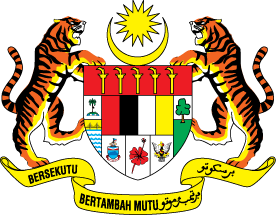





 Home
Home








